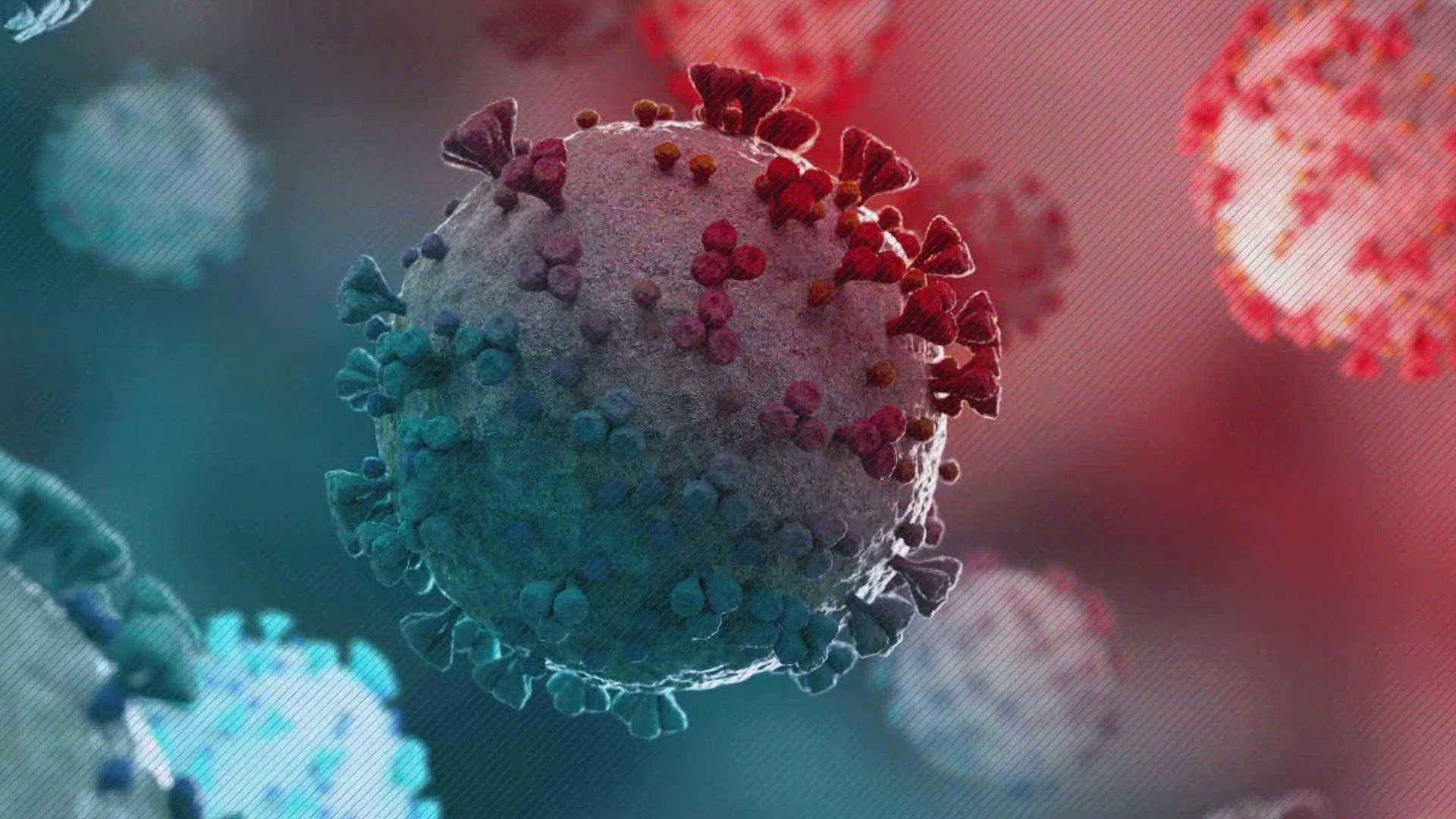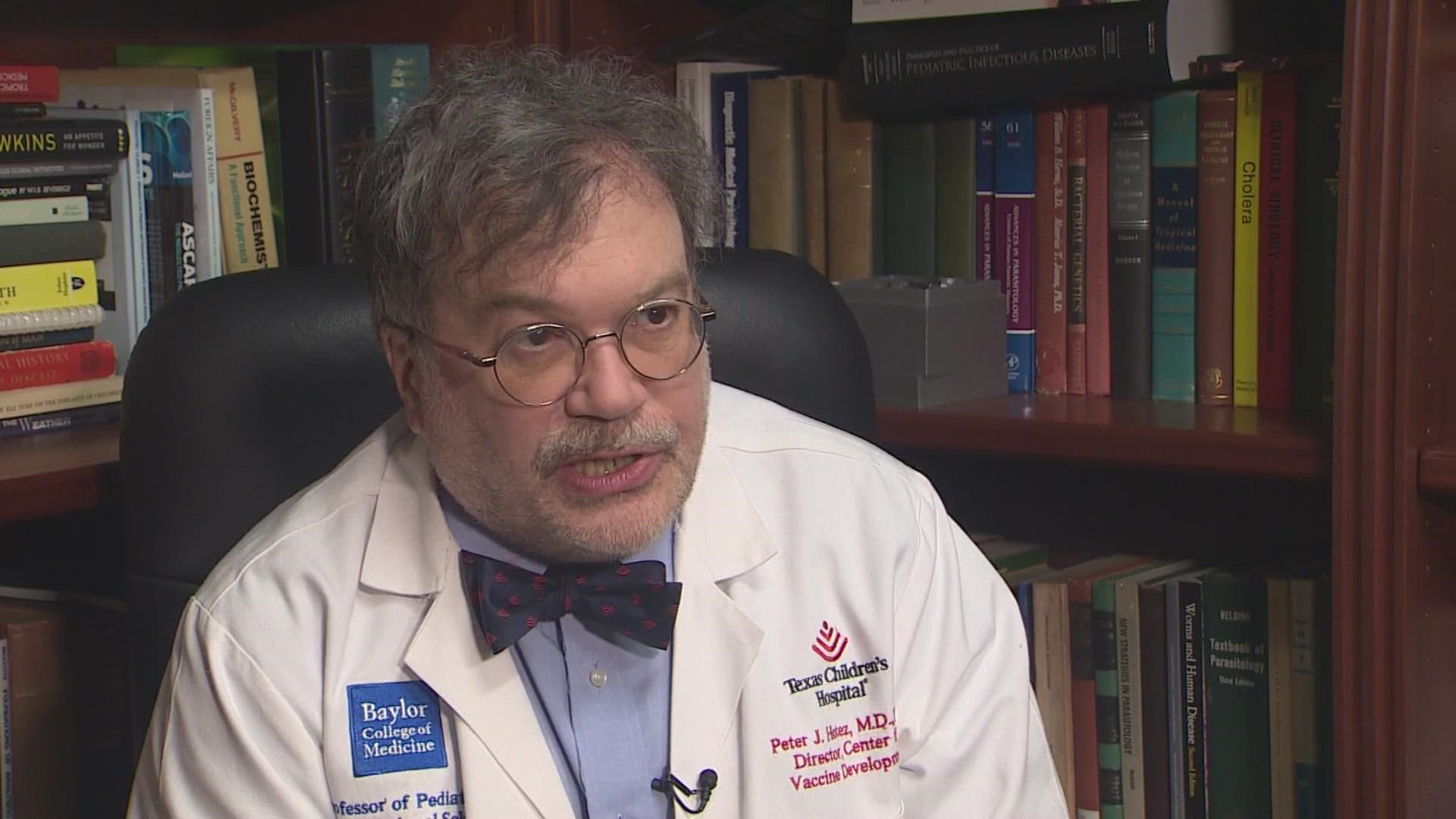SEATTLE — South African scientists identified a new version of the coronavirus this week that they say is behind a recent spike in COVID-19 infections in Gauteng, the country’s most populous province.
It's unclear where the new variant first emerged, but scientists in South Africa first alerted the World Health Organization and it has now been seen in travelers to Belgium, Botswana, Hong Kong and Israel.
There are no known cases of the omicron variant in the U.S. as of Friday. KING 5 answers five common questions about the new strain:
Will current vaccines prevent contracting the variant?
Dr. Deborah Fuller with UW Medicine said Friday that research is still underway to determine whether this particular variant of the virus will be resistant to vaccines.
"We still have to do some experiments in the lab to confirm that," Fuller said. "That's very easily done. We just get the sequences for the virus and then we can test in the lab whether or not antibody responses induced by our vaccines are going to be able to neutralize it. Also, there are other sorts of tests that we can do. We can test whether antivirals are effective against it. Until we know for sure, we don't really know how concerning this is in terms of a vaccine, but we're prepared. After a few years of studying this, there's labs all over the world, including many labs right here in Seattle, getting mobilized right now to study this virus and see how resistant to vaccines it is."
What happens if another vaccine is needed?
Several vaccine manufacturers have already confirmed they are studying the variant and the effectiveness of their formulas against it. Moderna, for example, released a statement describing its plans, including a program to "rapidly advance an Omicron-specific booster candidate" if needed.
Why is it a "variant of concern"?
The World Health Organization identifies both "Variants of Interest" and "Variants of Concern." You can view their full definitions here. A variant of concern must be associated with one of several specific changes at a degree of "global public health significance."
According to the WHO, those include an "increase in transmissibility or detrimental change in COVID-19 epidemiology," an "increase in virulence or change in clinical disease presentation," or a "decrease in effectiveness of public health and social measures or available diagnostics, vaccines, [or] therapeutics."
Is it in Washington?
As of Friday afternoon, the variant had not been reported in the United States. Work is underway to develop diagnostic tests and study transmission.
Is this variant more contagious? More dangerous?
The WHO said Friday that there are still a lot of questions left to be answered, including the degree of severity. Dr. Maria Van Kerkhove, COVID-19 Technical Lead for the WHO Health Emergencies Program, said in a release that "there are many studies underway. There is a lot of work that is ongoing in South Africa and in other countries to better characterize the variant itself in terms of transmissibility, in terms of severity and any impact on countermeasures like diagnostics, therapeutics or vaccine. So far there's little information but those studies are underway."


